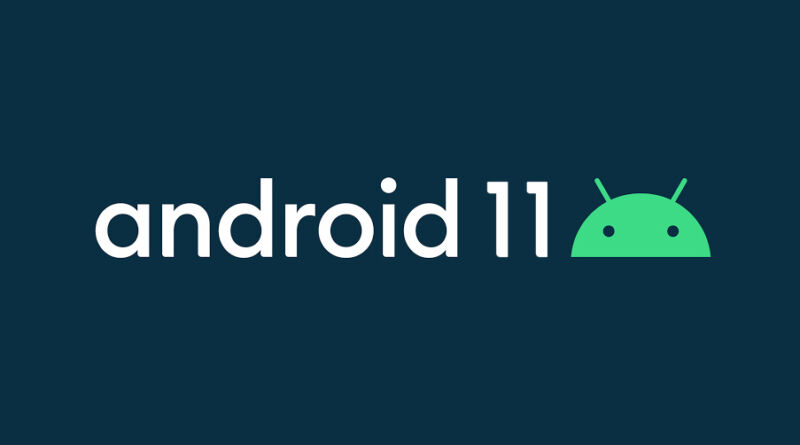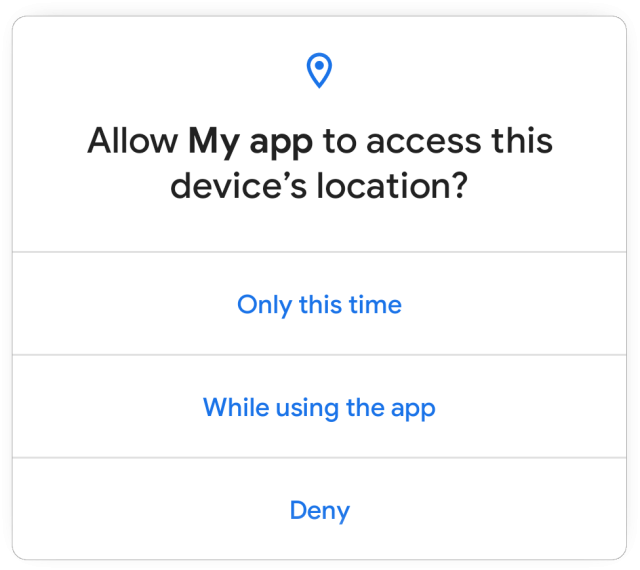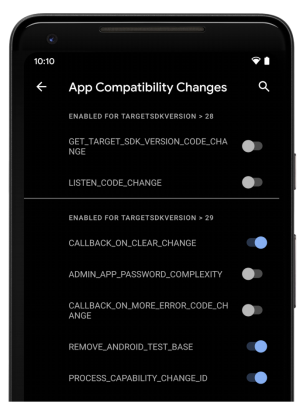
It's a bit earlier than the usual March release, but today Google is launching the first Android 11 Developer Preview. This first OS preview is coming to the Pixel 2, 3, 3a, and 4, along with generic system images for Project Treble devices. It also has a new name. Typically these releases have been denoted by a letter—Android 10 was the "Android Q Preview"—and while Android 11 is still called "Android R" internally, publicly this is the "Android 11 Developer Preview" to all us non-Googlers. True to form, Google has already started with the Spinal Tap references and starts the blog post with a dial that goes to 11.
For now we're just working off a giant blog post with lots of bullet points, and nearly zero screenshots, so we're not sure what the scope of this release is really like. We'll have a hands-on later, but for now, here are some highlights.
One of the most-used features of Android 11 will probably be a new "one-time permission" option for apps that want to access location, microphone, and camera data. In Android 10, Google added the ability to grant a permission to an app only when it was running in the foreground, and now users will be able to grant access to a permission a single time. This is already in iOS, and it makes a lot of sense for certain apps.
Google never stops tweaking the Android notification panel, and this year Google says the panel is getting a "dedicated conversations section in the notification shade." Again, we're working with zero screenshots here, but Google says users will be able to "instantly find their ongoing conversations with people in their favorite apps." Android 10 segmented the notification panel into high- and low-priority notifications, so maybe we'll get a third slice of the notification panel for conversations?
We should also get ready to see a lot more of the "Bubbles" API that debuted in Android 10 as a developer preview. The Bubbles API would shrink a messaging app down into a minimizable floating circle featuring your contact's face. This year, it seems to be out of the dev preview state and is ready for apps.
The modularization of Android also continues in Android 11. Android 10 spent a great deal of its engineering budget on "Project Mainline," aka "Google Play System Updates," which moved a lot of system components into either updatable APKs or a new, more powerful file format called "APEX." APEX is a file format custom-designed to be accessible earlier in the boot process and to have more permissions than an APK, making it ideal for housing and updating lower-level system components.

Android 11 is also getting support for the "secure storage and retrieval of verifiable identification documents, such as ISO 18013-5 compliant Mobile Driving Licenses." That's right—someday, assuming your state supports it, you'll be able to use a smartphone app for your government-issued ID instead of flashing a piece of plastic. XDA did some digging into this feature last year and found some neat features in the Android codebase, like a dead-battery mode that could show the ID info even if your phone doesn't have enough juice left to boot the full Android OS. Google says it will have "more details to share on this soon."
Life on Android 11 should be easier for app developers. Typically, breaking changes for apps have been an all-or-nothing affair hidden behind the "target SDK" that each app can call. In Android 11, Google actually built an "App compatibility" page with toggle-able features for each app. The idea is that, instead of setting a new target SDK and recompiling your app for testing, just open up the app compatibility page, start flipping switches, and see what breaks. Google also says it has worked to "minimize behavioral changes that could affect apps" and has made changes opt-in wherever possible.
As usual, this is just the first preview of Android 11, and there will probably be more features unveiled in future previews, especially at Google I/O 2020. Google's first post is targeted at developers and is basically a big list of API changes that doesn't mention many user-facing features, so I guess it's our job to track those down. We'll have a hands-on soon once we spend some time with the new OS preview and take a look at Google's documentation.
"Android" - Google News
February 20, 2020 at 01:00AM
https://ift.tt/2P7G0vD
Google launches the Android 11 Developer Preview today - Ars Technica
"Android" - Google News
https://ift.tt/336ZsND
Shoes Man Tutorial
Pos News Update
Meme Update
Korean Entertainment News
Japan News Update
Bagikan Berita Ini














0 Response to "Google launches the Android 11 Developer Preview today - Ars Technica"
Post a Comment